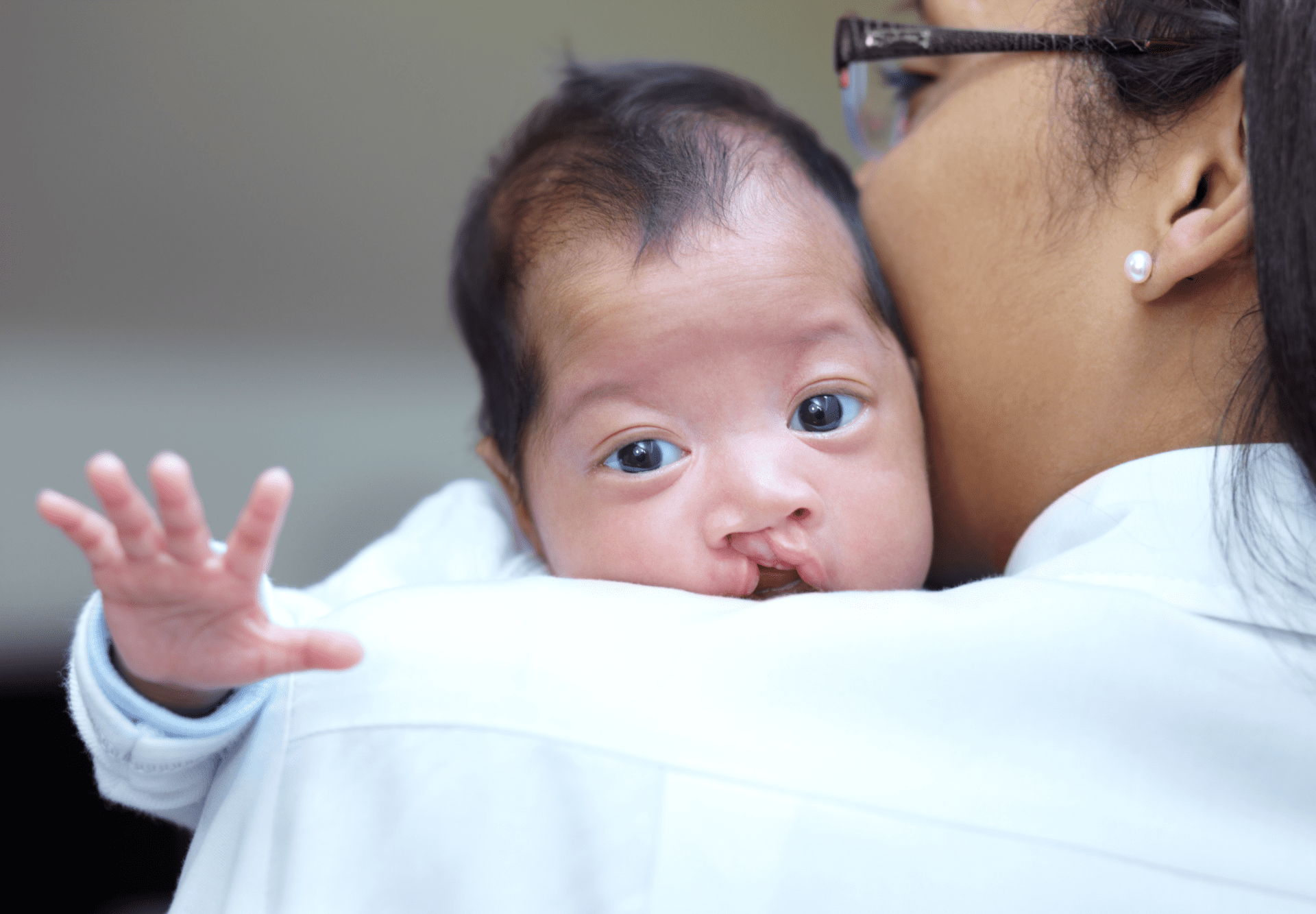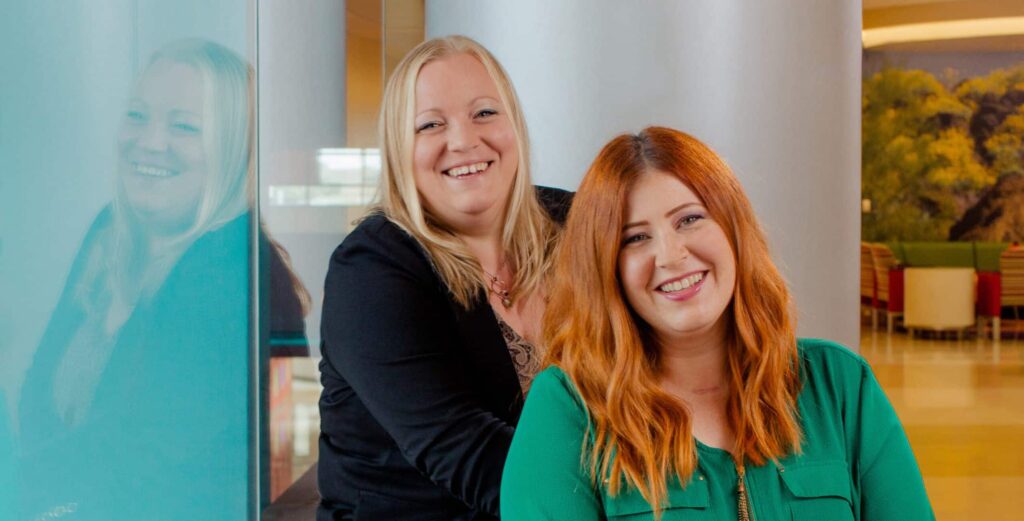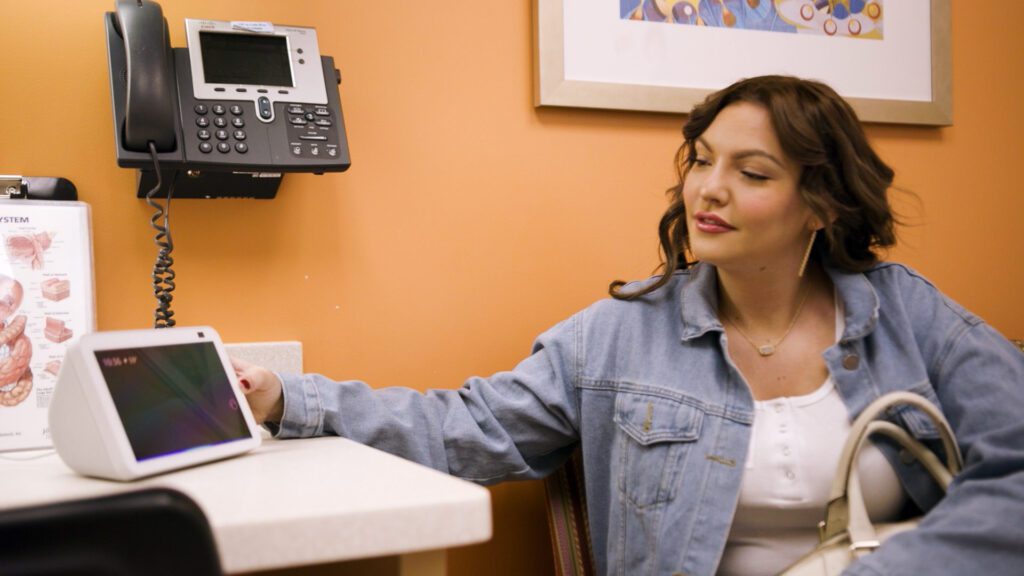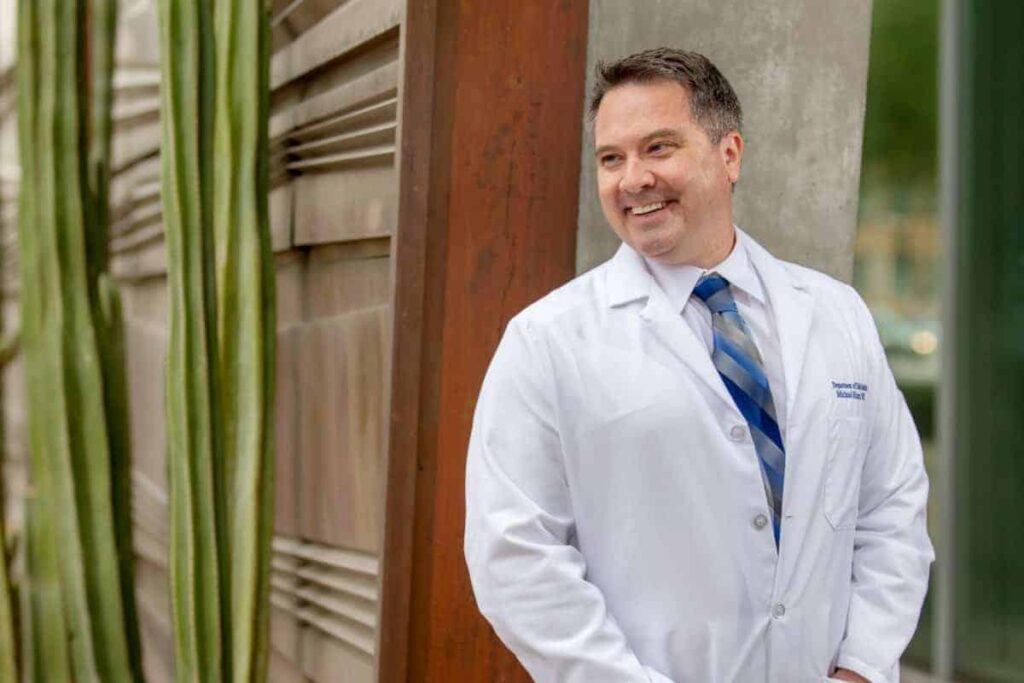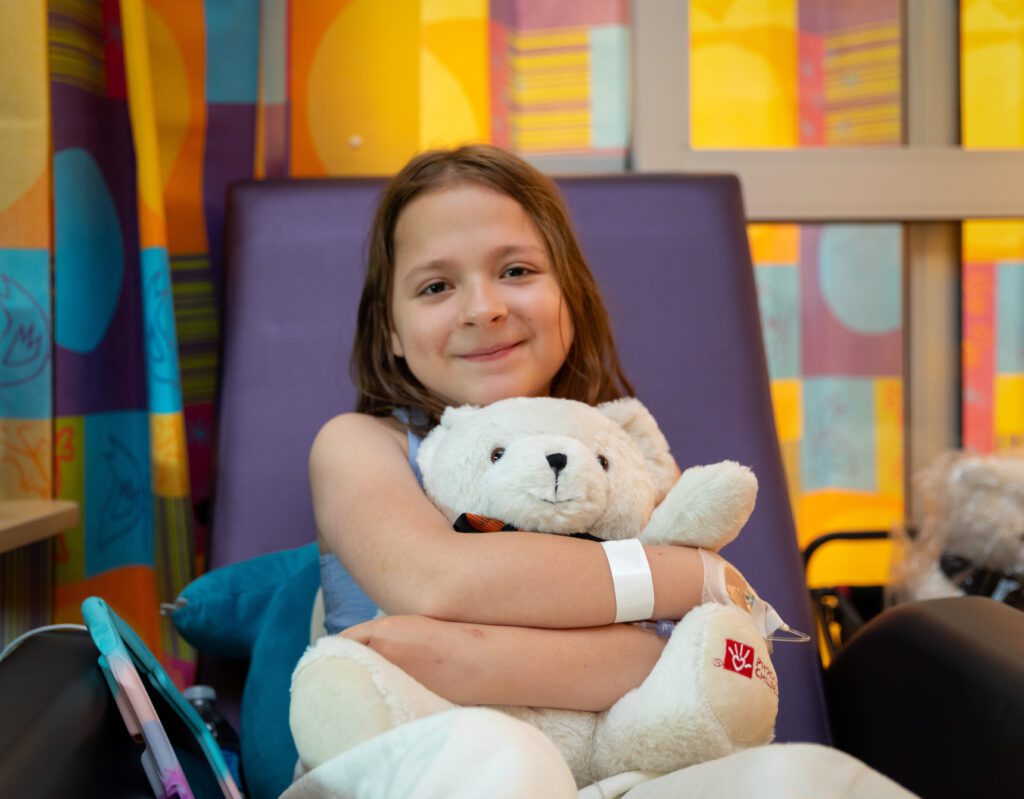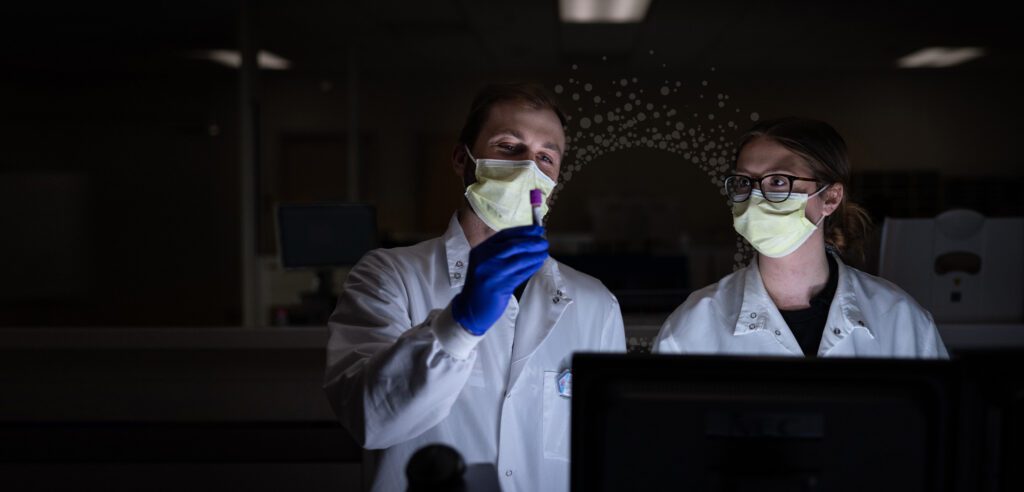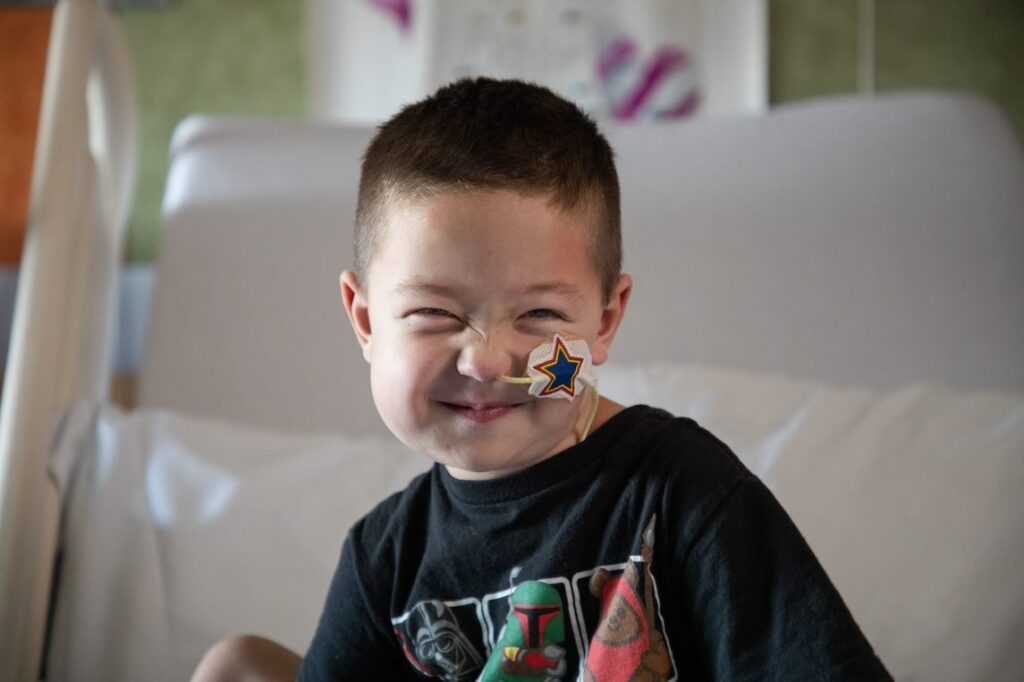A prevalent problem
Cleft lip and cleft palate are among the most common birth defects in the U.S. According to the Centers for Disease Control and Prevention, nearly one in every 1,600 babies is born with both cleft lip and cleft palate, which occur when the lip and the roof of the mouth don't form properly during fetal development. The defects typically are corrected surgically in the first several years of life.
Many babies with cleft lip and palate struggle to feed and gain weight. “Children can't eat, so they don't grow,” says Thomas Sitzman, MD, associate professor of plastic surgery at Phoenix Children's. “It actually has long-term implications for their health, meaning the surgeries they need get delayed.”
Patients need to be carefully monitored to avoid malnutrition. However, frequent doctor visits can be problematic for caregivers, particularly those with limited time or financial resources or who live in rural areas. In the past, Dr. Sitzman's team would monitor patients’ weight at weekly in-person visits. Occasionally, caregivers were given a scale and asked to email their child's weight to the team, but tracking and organizing data was disorganized and time-consuming.
“We were making the diagnosis months too late,” Dr. Sitzman says.
Smart patient monitoring from home
To address these challenges, Dr. Sitzman's team, together with a team from Children's Mercy Kansas City, used funding from Innovation Circle, a giving group whose members jointly invest in innovative, high-impact projects, to develop the Infant Growth NutrITion fEeding (IGNITE) Monitoring Program for Infants with Clefts. The goal is to detect problems with feeding and weight gain earlier so the care team can intervene sooner.
The program aims to help patients avoid significant growth delays, ease caregivers' anxiety, reduce the need for in-person visits, and improve care for families living outside the Valley. All children receiving treatment for cleft lip and palate at Phoenix Children’s are enrolled in the program. Each family receives a scale to weigh their infant at home. Using a custom-designed health-tracking app, the family submits information about the baby’s feeding sessions and weight to the care team at Phoenix Children’s, which uses an online dashboard to monitor the patient’s progress on a weekly basis.
When the patient is progressing well, the care team provides feedback to families via email or text message. When problems arise, the team can increase monitoring frequency or schedule a telehealth or in-person visit.
The program also helps the care team monitor mothers’ mental health in the months after delivery. Each mother receives a monthly questionnaire about levels of stress, anxiety and depression. Social workers review the questionnaires and provide targeted interventions to families who are at risk.
- “This will set the standard for how these kids should be monitored.”Vinay VaidyaChief Medical Information Officer, Phoenix Children's
Seeing the results
Dr. Sitzman and his team launched IGNITE in September 2022. Since then, the program has shown remarkable results, allowing early intervention to avoid malnutrition. Before the inception of the program, one in four children with a cleft palate cared for at Phoenix Children's was severely malnourished at four months of age, according to World Health Organization (WHO) standards.
During the first six months of the program, not a single child became undernourished—a 26 percent reduction—and patient visits within the first four months of life also decreased.
“We were able to avoid unnecessary visits with our feeding specialists for infants that were feeding and gaining weight well,” Dr. Sitzman says.
In one instance, a baby who relied on a nasal feeding tube avoided surgery for a gastric feeding tube. By monitoring her weight with IGNITE, the care team was able to determine that she no longer needed the invasive operation, and doctors were able to remove the nasal feeding tube.
In addition, families in rural communities have expressed excitement and relief knowing they can see cleft care specialists without the hurdle of traveling to Phoenix, with one mother saying she feels supported by the team to care for her child's needs in her home.
Next steps
Phoenix Children's is in ongoing discussions with other pediatric hospitals, most notably Seattle Children’s, that are interested in adopting the program for their patients.
“This will set the standard for how these kids should be monitored,” says Vinay Vaidya, chief medical information officer at Phoenix Children’s, who led the development of the app.
Dr. Sitzman adds, “It's been a win for everyone and really energized us to take on more projects like this. We are grateful to Innovation Circle for providing us with the support needed.”
Your support makes it possible for Phoenix Children’s physicians, researchers and clinical leaders to turn their visionary ideas into reality.

